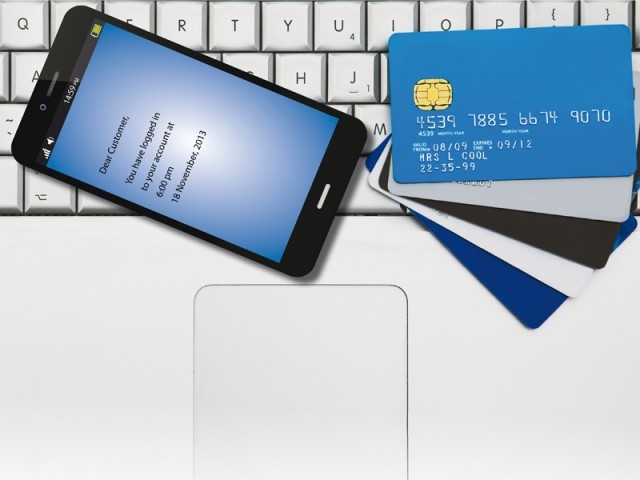
The central bank recently launched a pilot project for Easypaisa mobile account holders, raising their daily and monthly transfer limits from the current levels of Rs15,000 and Rs25,000, respectively, to Rs50,000 and Rs80,000.
The apex regulator of the banking sector is likely to extend the pilot tests offer to other operators – UBL Omni, Mobicash, Timepey to name a few – and even form a new regulation in this regard.
“The SBP would consider requests of other banks on a case-to-case basis for pilot test,” the central bank’s chief spokesman said responding to a query by The Express Tribune. “At this point in time, the approval is for pilot testing only,” he added.
On the basis of successful pilot test results and feedback of users, the spokesman stated the SBP may consider making this [pilot] part of its regulations.
Mobile financial services (MFS) providers, banks and cellular companies, had long been lobbying for an increase in the transfer limit, which can increase both the volume and value of MFS transactions. It was, however, only after the biometric verification system that the SBP considered the industry’s proposal – though on a test basis.
The transaction limits for existing Branchless Banking (BB) accounts are based on customer needs and know your customer (KYC) norms, according to the SBP.
“The biometric technology increases authentication of account holders and effectively addresses the risks perceived by banks, therefore, State Bank has given a pilot launch approval to Tameer Microfinance Bank,” the spokesman said.
As per the approval, account holders for Easypaisa – a joint venture of Tameer Microfinance Bank and Telenor Pakistan – can transfer money using new limits because their KYC was done through biometric technology when they opened their accounts.
“The main objective is to facilitate general public keeping in view the effective KYC mechanism through usage of biometric technology,” the spokesman said. “This technology would be a highly effective tool for risk management,” he said, adding, “The initiative would result in convenience of fulfillment of financial needs of people.”
In March, SBP Governor Ashraf Mahmood Wathra had told the attendees of a mobile commerce event that the central bank, in collaboration with the World Bank, has developed a strategy to increase the uptake of m-wallets (mobile accounts) to over 50 million by the year 2020 – there are only 5 million mobile accounts currently.
The initiative, if turned into a regulation, will help spur the growth of m-wallet accounts and their share in the overall BB transactions.
The m-wallet transactions have grown by 22% to 9.7 million in October-December quarter compared to 7.9 million of the last quarter. However, their share in overall BB transactions remained 14% whereas over-the-counter (OTC) transactions accounted for 86% of the total BB transactions. The value of m-wallet transactions reached Rs25.5 billion during the quarter ending on December 31, 2014, up 26% compared to Rs20.1 billion of the previous quarter.
Industry experts, however, say the pilot should be extended to other operators as soon as possible to expedite the pace of financial inclusion.
“It’s a good initiative and the limit must be increased,” Information and Communications Technology expert and former Managing Director of Universal Services Fund, Parvez Iftikhar said of the SBP’s pilot project.
“The SBP is testing waters through a conservative approach and that’s right because it’s about people’s money and trust in the regulator,” Iftikhar said.
Published in The Express Tribune, May 2nd, 2015.
Like Business on Facebook, follow @TribuneBiz on Twitter to stay informed and join in the conversation.
-(1)1717678110-0/Kendrick-(1)-(1)1717678110-0-405x300.webp)
















COMMENTS (2)
Comments are moderated and generally will be posted if they are on-topic and not abusive.
For more information, please see our Comments FAQ